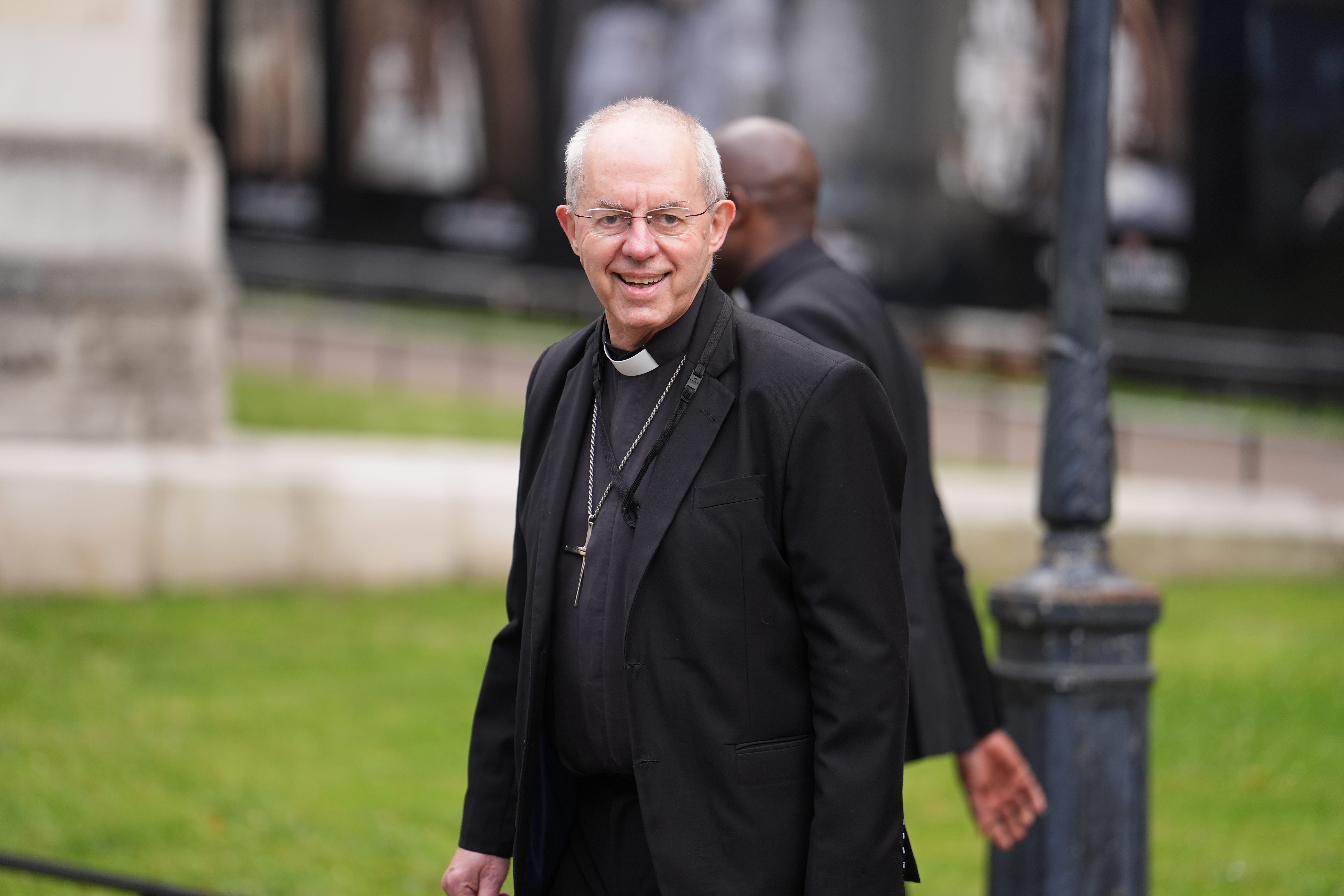Welby: Ending Israel’s occupation of Palestinian territories ‘legal necessity’
It is understood the Archbishop of Canterbury’s statement two weeks on from the ICJ ruling follows a period of reflection.

Your support helps us to tell the story
From reproductive rights to climate change to Big Tech, The Independent is on the ground when the story is developing. Whether it's investigating the financials of Elon Musk's pro-Trump PAC or producing our latest documentary, 'The A Word', which shines a light on the American women fighting for reproductive rights, we know how important it is to parse out the facts from the messaging.
At such a critical moment in US history, we need reporters on the ground. Your donation allows us to keep sending journalists to speak to both sides of the story.
The Independent is trusted by Americans across the entire political spectrum. And unlike many other quality news outlets, we choose not to lock Americans out of our reporting and analysis with paywalls. We believe quality journalism should be available to everyone, paid for by those who can afford it.
Your support makes all the difference.The Archbishop of Canterbury has stated his support for a ruling by a top United Nations court which said Israel’s presence in the Palestinian occupied territories is “unlawful” and should end.
Justin Welby said it is “clear that ending the occupation is a legal and moral necessity”.
He called on all United Nations member states – which includes the UK – to “respond positively” to the non-binding ruling by the International Court of Justice (ICJ) and for the “realisation of the Palestinian people’s fundamental right to self-determination”.
The ICJ issued its advisory opinion on July 19 on the legality of Israel’s 57-year occupation of lands sought for a Palestinian state.
International law protects our shared humanity, and safeguards human dignity and flourishing
It is understood Mr Welby’s statement two weeks on from that ruling follows a period of reflection.
The ICJ panel of judges from around the world said Israel must immediately cease all new settlement activity and should repeal all legislation and measures which discriminate against the Palestinian people in the Occupied Palestinian Territory.
It said the “sustained abuse” by Israel of its position as an occupying power, “through annexation and an assertion of permanent control over the Occupied Palestinian Territory and continued frustration of the right of the Palestinian people to self-determination, violates fundamental principles of international law and renders Israel’s presence in the Occupied Palestinian Territory unlawful”.
The archbishop has faced criticism for not speaking out more against Israel, with Palestinian Anglicans saying he was “relegating” their plight.
In his statement on Friday, Mr Welby said the ICJ ruling “makes definitively clear that Israel’s presence in the Occupied Palestinian Territories is unlawful and needs to end as rapidly as possible”.
He said: “At a time when the world is marked by increasing violations of international law – and commitment to a rules-based system is in question – it is imperative that governments around the world reaffirm their unwavering commitment to all decisions by the International Court of Justice, irrespective of the situation. International law protects our shared humanity, and safeguards human dignity and flourishing.
“To resist a world where actions such as torture, hostage-taking and indiscriminate violence become the norm, we must apply the law without fear or favour in all circumstances. But for too long it has been applied and upheld in a selective manner that threatens our common peace and security. Now is the time to reverse that deeply damaging trend.”
He said his visits in recent decades made it clear “that the regime imposed by successive Israeli governments in the Occupied Palestinian Territories is one of systemic discrimination”.
He added: “Through annexing Palestinian land for illegal settlements, depriving Palestinians access to their own natural resources, and imposing a system of military rule that denies them safety and justice, the State of Israel has been denying the Palestinian people dignity, freedom and hope.
“I am particularly aware of how this is impacting Palestinian Christians, threatening their future and viability. It is clear that ending the occupation is a legal and moral necessity.
“I pray that all UN member states respond positively to this advisory opinion by ensuring their individual and common actions are consistent with it – and pave the way for the realisation of the Palestinian people’s fundamental right to self-determination.”
When the ICJ advisory opinion was published last month, the Foreign, Commonwealth and Development said it had received it and was “considering it carefully before responding”.